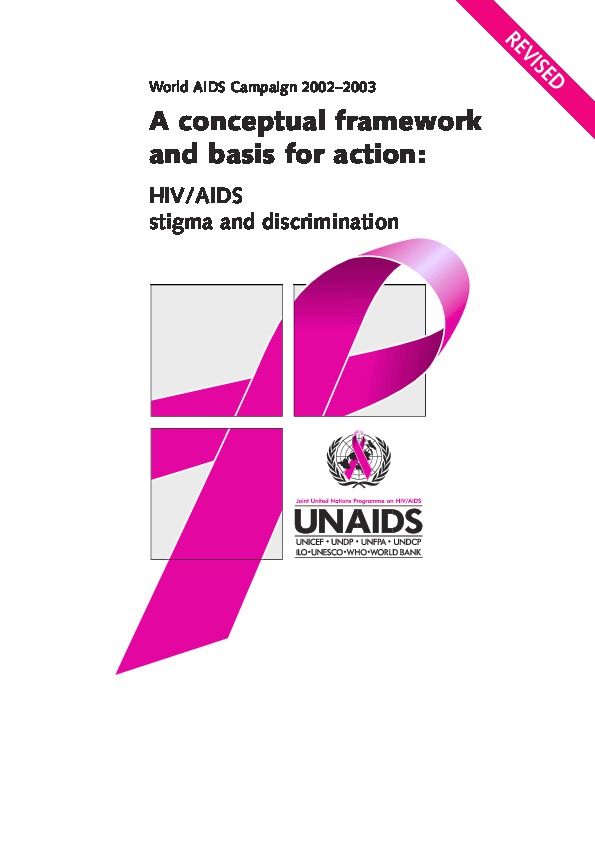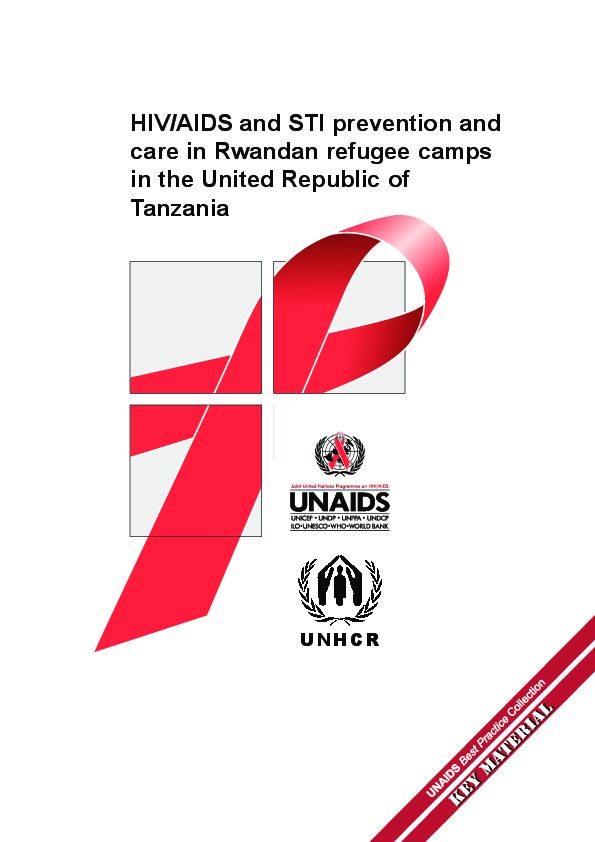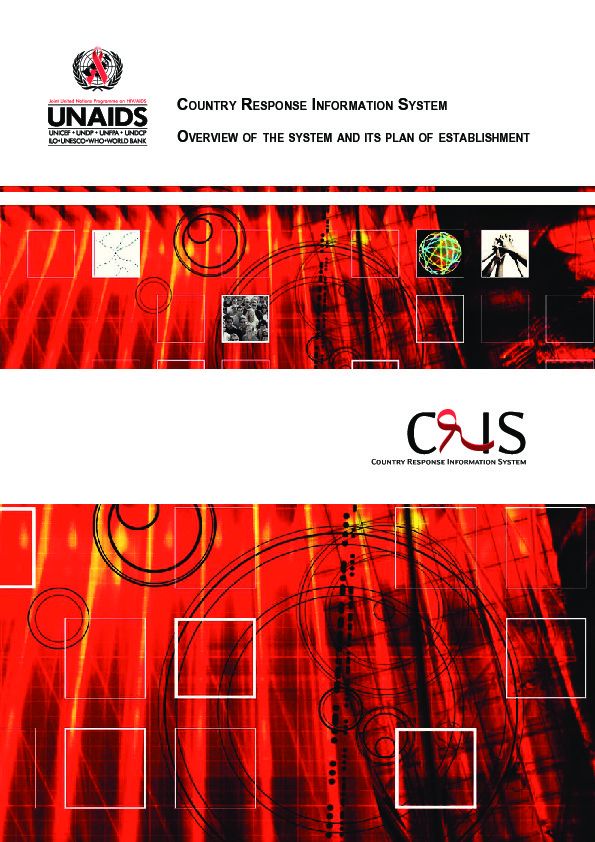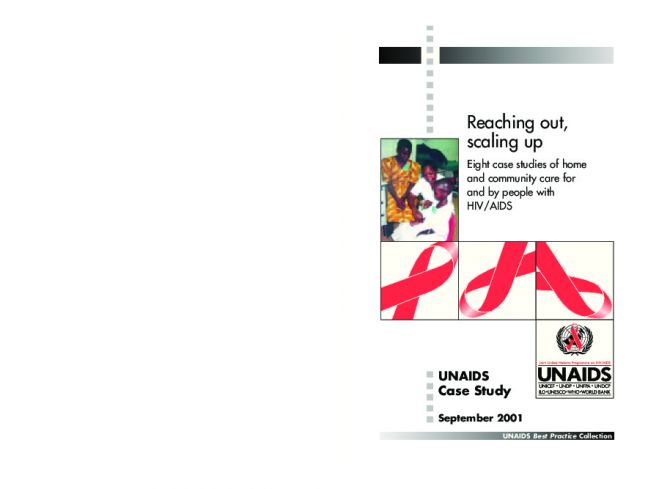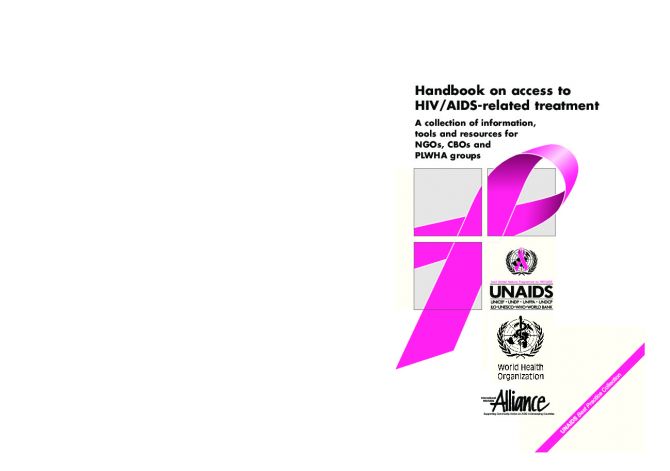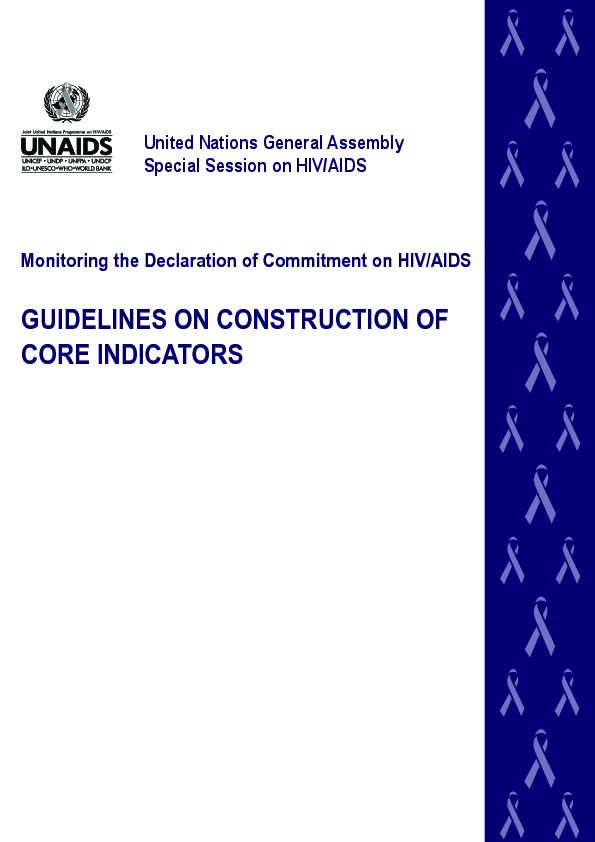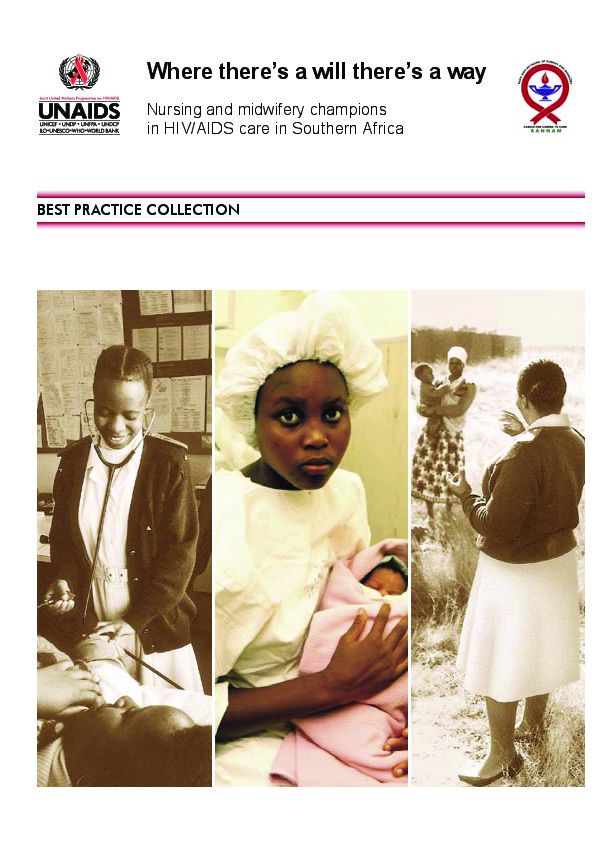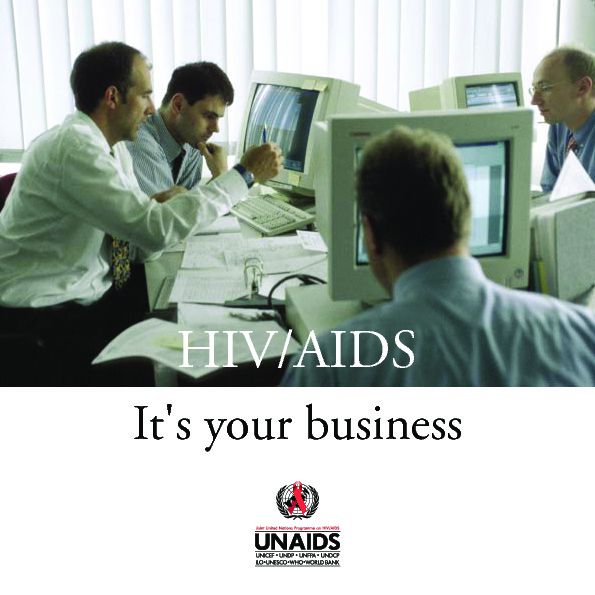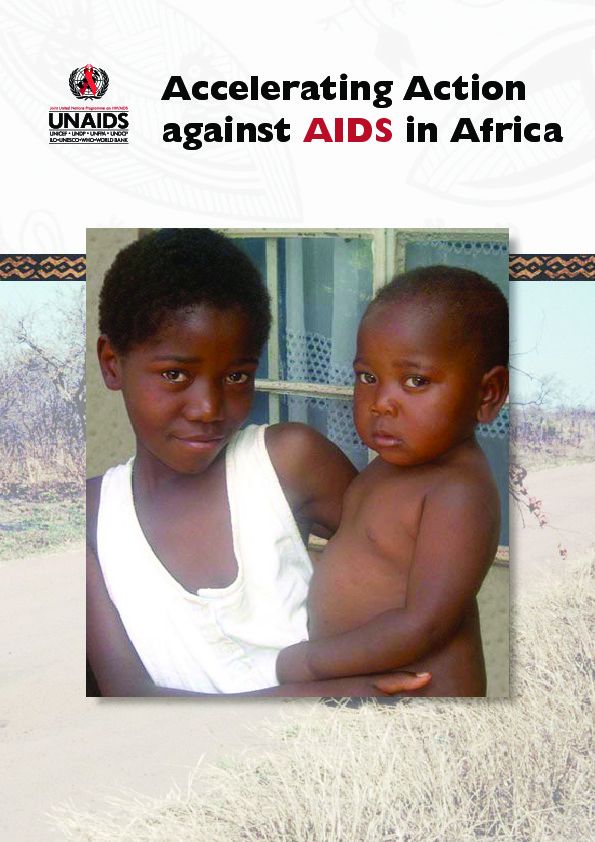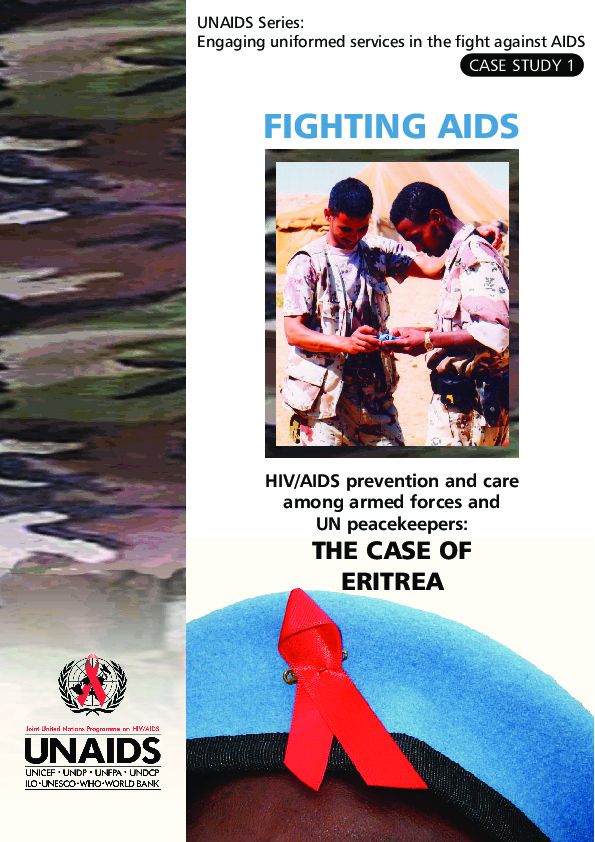Documents
World AIDS Campaign 2002–2003. A conceptual framework and basis for action : HIV/AIDS stigma and discrimination
06 January 2003
The World AIDS Campaign for the years 2002–2003 will focus on stigma and discrimination. The main objective of the campaign is to prevent, reduce and ultimately eliminate HIV/AIDS-related stigma and discrimination, wherever it occurs and in all its forms. Stigma and discrimination associated with HIV and AIDS are the greatest barriers to preventing further infections, providing adequate care, support and treatment and alleviating impact. Self-stigmatization, or the shame that people living with HIV/AIDS experience when they internalize the negative responses and reactions of others can lead to depression, withdrawal and feelings of worthlessness. Discrimination against those living with HIV/AIDS, or presumed to be infected is a violation of human rights. All individuals have a right to equal respect and dignity, whatever their health status. The aim of this conceptual framework is to: create a common understanding of HIV/AIDS-related stigma and discrimination; highlight some existing interventions targeting HIV/AIDS-related stigma and discrimination, and contribute to effective ways of preventing stigma and challenging discrimination when it occurs, and monitoring and redressing human rights violations.
Documents
AIDS and STI prevention and care in Rwandan refugee camps in the United Republic of Tanzania
10 March 2003
This document examines the first large-scale HIV/AIDS/STI intervention programme to be implemented during a refugee crisis. It describes the intervention’s operational aspects, the observed impact and the effect this experience had on practices in other refugee situations, among both international and nongovernmental organizations (NGOs). It provides insights into the approaches for STI services that will be useful for reproductive health programme managers, as well as NGOs involved in relief operations. It will also be useful for district or regional health managers in identifying needed support systems for STI service delivery.
Documents
Country Response Information System : overview of the system and its plan of establishment
18 March 2003
Improved information and informed analysis are critical for the development of expanded national responses to AIDS. Some countries have developed HIV surveillance systems and countries are increasingly collecting information on resources allocated for AIDS programmes and projects. Responding to the needs at the national and global levels for improved information and analysis, UNAIDS has embarked on an ambitious plan to establish an information system to support national AIDS responses. This document describes the historical development of the Country Response Information System (CRIS), and the related activities undertaken by UNAIDS in 2002 and 2003.
Documents
Reaching out, scaling up : eight case studies of home and community care for and by people with HIV/AIDS, UNAIDS Case Study
23 April 2003
The theme of this report, Reaching out, scaling up, reflects a concern that has become increasingly important in the past few years. All too often, good local-level responses to HIV/AIDS—best practices, in other words—have remained local and small-scale. The many lessons learned have not been translated into bigger projects or wider coverage.
Documents
Handbook on access to HIV/AIDS-related treatment : a collection of information, tools and resources for NGOs, CBOs and PLWHA groups
13 May 2003
Drawing on the broad experience of UNAIDS, WHO and the International HIV/AIDS Alliance, the Handbook on access to HIV/AIDS-related treatment provides nongovernmental organizations, community-based organizations and groups of people living with HIV/AIDS with a practical resource for responding to issues of access to treatment for HIV/AIDS in developing countries. The handbook will: build practical skills among NGOs, CBOs and PLWHA groups by using participatory activities and sharing experiences; provide a training resource for NGO support programmes, training organizations and individuals; facilitate ongoing learning about the HIV/AIDS-related treatment work of NGOs, CBOs and PLWHA groups. The handbook is intended to assist groups in finding ways of understanding, planning and undertaking work on HIV/AIDS related treatment. It is suitable for use with people of varying levels of experience and offers flexibility to facilitators who need to gear their work towards specific schedules and situations.
Documents
Where there's a will, there's a way: nursing and midwifery, champions of HIV/AIDS care in Southern Africa
17 June 2003
HIV/AIDS needs champions—and nurses and midwives need recognition—for providing care and support to people living with IV/AIDS, their families and communities. This publication describes nursing and midwifery champions in HIV/AIDS care in Southern Africa, who, with singular commitment and resourcefulness, are delivering good-quality care in spite of innumerable obstacles and constraints. They carry a heavy burden, and they know the meaning of the expression, “where there’s a will there’s a way”. UNAIDS and the SADC AIDS Network of Nurses and Midwives (SANNAM) celebrate just a few of the many thousands of champions who are on the front lines of care and treatment, many times feeling the sadness, shame and anger of having so little to offer. In describing the work of a few, the intention is to pay tribute to all who are doing a caring, committed job in the face of great odds, and to share the valuable lessons they have learned from experience. In addition to being of value to nurses and midwives, this report is also aimed at all those with an interest in improving the quality of care and support of people living with HIV/AIDS—especially those responsible for training, managing and supervising nursing and midwifery staff, and policy-makers within health-care services.
Documents
HIV/AIDS : it's your business
08 September 2003
Kofi Annan, United Nations Secretary-General, said in a speech in June 2001: ‘‘It is high time we tapped the strengths of the business sector to the full. AIDS affects business. The spread of the pandemic has caused business costs to expand, and markets to shrink. As both the current balance sheet and future indicators show, the business community needs to get involved to protect its bottom line…”
Documents
Accelerating action against AIDS in Africa
10 September 2003
This report provides a snapshot of the action being taken across the African continent in response to the challenge of AIDS. It highlights governments working with all their ministries to deliver a full-scale response. It demonstrates progress in closing the gaps in the provision of HIV prevention and treatment. It shows the value of partnership between government, communities and businesses. It showcases the determination of African women to throw off the disproportionate burden that AIDS represents for them. And it makes manifest the voice of hope, in the many successful responses by young people in fighting the epidemic.
Documents
Fighting AIDS: HIV/AIDS prevention and care among armed forces and UN peacekeepers. The case of Eritrea
25 September 2003

